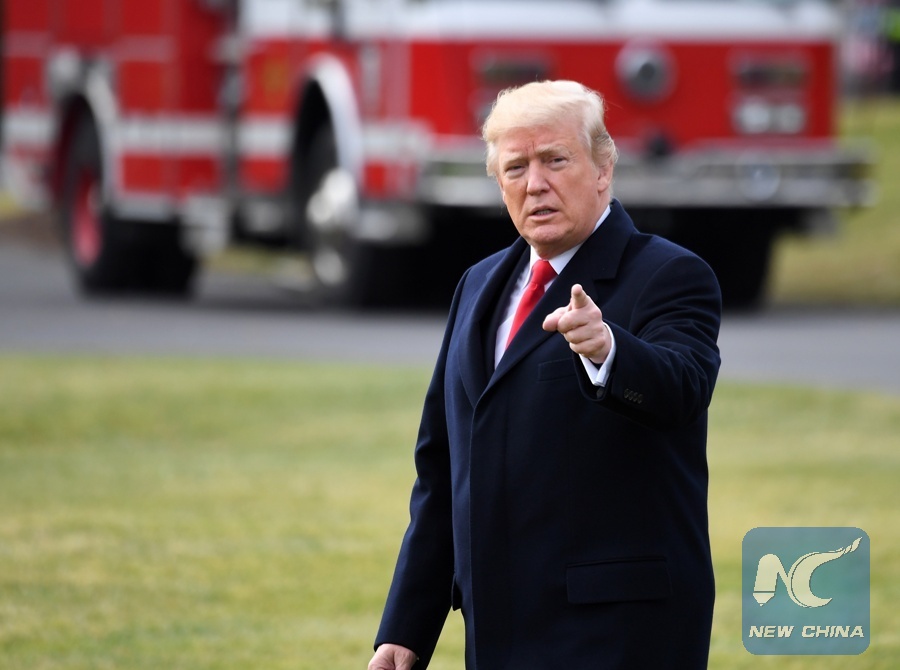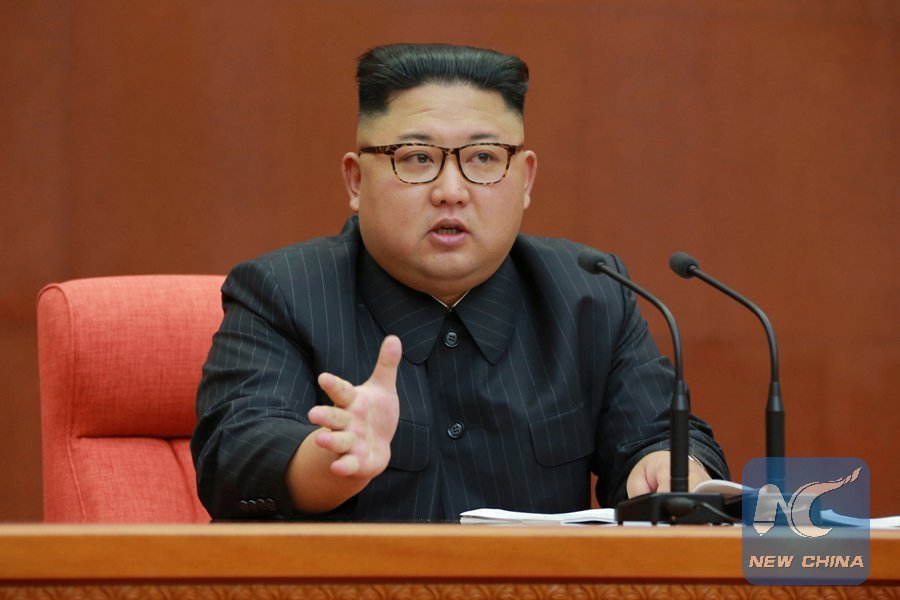File Photo: Kim Jong Un, top leader of the Democratic People's Republic of Korea (DPRK), speaks during the Second Plenum of the 7th Central Committee of the Workers' Party of Korea in Pyongyang, capital of the DPRK, Oct. 7, 2017. (Xinhua/KCNA)
by Matthew Rusling
WASHINGTON, Dec. 27 (Xinhua) -- With tensions on the Korean Peninsula hitting new heights this year, it remains unknown what will occur between the United States and the Democratic People's Republic of Korea (DPRK) in 2018.
The coming year could be the "decisive time" between Washington and Pyongyang, Brookings Institution Senior Fellow Darrell West told Xinhua, adding that it remains unclear whether the international pressure on Pyongyang will deter its missile and nuclear programs.
West noted that to press DPRK top leader Kim Jong Un to slow down weapons testing, U.S. President Donald Trump has threatened military action.
"That could put the region on a path to greater escalation," West said.
Other analysts, however, have a different view.
Stratfor, a geopolitical intelligence group, said in a press statement Wednesday that the United States may actually end up standing by as the DPRK promotes its nuclear weapons development.
"Though we cannot rule out a preventative strike against North Korea (the DPRK) entirely, the threat of a messy war in East Asia that shoves the world back into economic recession is a steep price to pay," said Stratfor Vice President of Strategic Analysis Rodger Baker.
The year 2017 has seen an ongoing war of words between Trump and Kim, with Trump threatening "fire and fury" against the DPRK if it endangers the United States, and Kim threatening to turn the United States into a "sea of fire."
The businessman-turned-president wanted to rid the Korean Peninsula of nuclear weapons, and is trying to ratchet up the pressure on the DPRK, in a game of brinkmanship that has had many nations on edge over this past year. This came amid continued missile tests by the DPRK, as well as the joint military drills by the United States and South Korea.

U.S. President Donald Trump gestures as he leaves the White House en route to Mar-a-lago Estate in Florida after signing the tax cut bill into law in Washington D.C., the United States, on Dec. 22, 2017. (Xinhua/Yin Bogu)
Despite Trump's heightened rhetoric, U.S. experts said the DPRK would not be letting go of its nuclear weapons program anytime soon.
Analysts said DPRK leaders have always been astute geopolitical observers.
They saw how leaders in Iraq and Libya were toppled by the United States, and Kim did not want to suffer the same fate. Pyongyang sees nuclear weapons as the only ticket to its survival, many U.S. experts say.
Troy Stangarone, senior director at the Korea Economic Institute, told Xinhua that the DPRK faces a security dilemma, as it is surrounded by hostile powers such as South Korea, the United States and Japan.
"From the (DPRK's) perspective, in the absence of nuclear weapons it would not be able to secure its survival," he said.
Other experts argue that the DPRK has always sought nuclear weapons.
The DPRK "has been seeking nuclear weapons since the beginning of its existence," Douglas Paal, vice president for studies at the Carnegie Endowment for International Peace, told Xinhua.
When asked whether Trump's rhetoric will help his goal of ridding the DPRK of nukes, Stangarone said that unlike political opponents and U.S. companies, "Kim Jong Un cannot be intimidated" by Trump's rhetoric.


